Hssp0400t chaptestb - test PDF

| Title | Hssp0400t chaptestb - test |
|---|---|
| Author | John Cenaa |
| Course | Physics Honors |
| Institution | University of Colorado Boulder |
| Pages | 6 |
| File Size | 816.8 KB |
| File Type | |
| Total Downloads | 75 |
| Total Views | 125 |
Summary
test...
Description
Name:______________________________Class:__________________ Date:__________________
Assessment
Chapter Test B Teacher Notes and Answers Forces and the Laws of Motion CHAPTER TEST B (ADVANCED) 1. 2. 3. 4.
5. 6. 7. 8. 9. 10. 11. 12.
d a c b Given Fy = 60.0 N
14. Force causes an acceleration or a change in an object’s velocity. Applying the brakes decelerates the bicycle (accelerates it in the negative direction) and causes a change in the bicycle’s velocity because the bicycle slows down. 15. A scalar quantity has only magnitude. Force has both magnitude and direction; so, it cannot be a scalar quantity. 16.
= 30.0° Solution Fy cos = F Fy 60.6 N F= = = 70.0 N cos cos 30.0° c d d a c a b a Given Fg = 1.0 102 N
17. The natural condition for a moving object is to remain in motion once it has been set in motion. 18. Gravity exerts a downward force on the car that is balanced by the normal force of the road acting upward on the car. The car’s forward motion is opposed by the friction between the road and the tires and by the resistance of the air. The sum of these opposing forces is balanced by an equal and opposite force exerted by the engine and applied to the tires, where the road exerts a reaction force that is directed forward. 19. Mass is the amount of matter in an object and is an inherent property of an object. Weight is not an inherent property of an object and is the magnitude of the force due to gravity acting on the object. 20. The acceleration is then zero, and the car moves at a constant speed.
= 20.0° Solution Fy = Fn Fg, y = 0 Fn = Fg, y = Fg cos = 2 (1.0 10 N)(cos 20.0°) = 94 N 13. b Given Fg, book = 5 N
μs = 0.2 Solution
Fnet = Fx = Fapplied Fs, max = 0 Fapplied = Fs, max = μsFn = μsFg Fg = (5 N + 5 N + 5 N + 5 N + 5 N) = 25 N Fapplied = (0.2)(25 N) = 5 N
Original content Copyright © by Holt, Rinehart and Winston. Additions and changes to the original content are the responsibility of the instructor.
Holt Physics
1
Chapter Tests
Name:______________________________Class:__________________ Date:__________________ 21. Air resistance is a form of friction because it is a retarding force. It acts in the direction opposite an object’s motion. 22. 48 N Given F = 8.0 101 N = 53° Solution F = Ff Fy = 0
25. 0.387 Given m = 1.00 102 kg ax = 0.70 m/s2 = 25.0° g = 9.81 m/s2 Solution Fx = Fx Ff = Fnet = max Ff = Fx Fnet
Ff = F y = F cos = (8.0 101 N)
Fnet = max
(cos 53°) = 48 N 23. 1.3 m/s2, upward Given
μk Fn = μ k mg cos = μk (1.00 102 kg)(9.81 m/s2 )(cos 25.0°) μk Fn = μ k (8.89 102 N)
Fapplied, y = 277 N
2 Fx = mg sin = (1.00 10 kg)
Fg = 245 N
(9.81 m/s2 )(sin 25°) = 4.14 102 N
m = 25 kg Solution
Fnet = max = (1.00 102 kg) (0.70 m/s2 ) = 0.70 102 N
Fnet = Fy = Fapplied, y Fg = ma (Fapplied, y Fg )
μk =
= m (277 N 245 N) = 1.3 m/s2 (25 kg) a=
F x Fnet = Fn Fn
(4.14 10 2 N 0.70 102 N) (8.89 102 N)
2
a = 1.3m/s , upward 24. 14 N, upward Given Fg, 1 = 5 N Fg, 2 = 9 N Fg, 3 = 16 N Solution Fnet, y = Fy = Fn Fg, 1 Fg, 2 = 0 Fn = Fg, 1 + Fg, 2 = 5 N + 9 N = 14 N Fn = 14 N, upward
= 0.387
Original content Copyright © by Holt, Rinehart and Winston. Additions and changes to the original content are the responsibility of the instructor.
Holt Physics
2
Chapter Tests
Name:______________________________Class:__________________ Date:__________________
Assessment
Forces and the Laws of Motion Chapter Test B MULTIPLE CHOICE In the space provided, write the letter of the term or phrase that best completes each statement or best answers each question.
_____ 1. Which of the following forces is an example of a contact force? a. gravitational force c. electric force b. magnetic force d. frictional force _____ 2. Which of the following forces is an example of a field force? a. gravitational force c. normal force b. frictional force d. tension _____ 3. In the free-body diagram shown to the right, which of the following is the gravitational force acting on the balloon? a. 1520 N c. 4050 N b. 950 N d. 5120 N _____ 4. A late traveler rushes to catch a plane, pulling a suitcase with a force directed 30.0° above the horizontal. If the horizontal component of the force on the suitcase is 60.6 N, what is the force exerted on the handle? a. 53.0 N c. 65.2 N b. 70.0 N d. 95.6 N _____ 5. A single force acts on an object. The components of this force act along the +x-axis and the y-axis. The single force that will bring the object into equilibrium has components that act along the a. +x-axis and +y-axis. c. x-axis and +y-axis. b. +x-axis and y-axis. d. x-axis and y-axis. _____ 6. As an object falls toward Earth, a. the object does not exert a force on Earth. b. the object exerts a downward force on Earth. c. Newton’s third law does not apply. d. the upward acceleration of Earth is negligible because of its large mass. _____ 7. In general, Fnet equals a. Ff. b. Fg.
c. Fn. d. F.
Original content Copyright © by Holt, Rinehart and Winston. Additions and changes to the original content are the responsibility of the instructor.
Holt Physics
3
Chapter Tests
Name:______________________________Class:__________________ Date:__________________
Chapter Test B continued
_____ 8. A small force acting on a human-sized object causes a. a small acceleration. c. a large acceleration. b. no acceleration. d. equilibrium. _____ 9. A hammer drives a nail into a piece of wood. Identify an actionreaction pair in this situation. a. The nail exerts a force on the hammer; the hammer exerts a force on the wood. b. The hammer exerts a force on the nail; the wood exerts a force on the nail. c. The hammer exerts a force on the nail; the nail exerts a force on the hammer. d. The hammer exerts a force on the nail; the hammer exerts a force on the wood. _____ 10. As a basketball player starts to jump for a rebound, the player begins to move upward faster and faster until his shoes leave the floor. At the moment the player begins to jump, the force of the floor on the shoes is a. greater than the player’s weight. b. equal in magnitude and opposite in direction to the player’s weight. c. less than the player’s weight. d. zero. _____ 11. The magnitude of the gravitational force acting on an object is a. frictional force. c. inertia. b. weight. d. mass. _____ 12. A sled weighing 1.0 102 N is held in place on a frictionless 20.0° slope by a rope attached to a stake at the top. The rope is parallel to the slope. What is the normal force of the slope acting on the sled? a. 94 N c. 37 N b. 47 N d. 34 N _____ 13. There are six books in a stack, and each book weighs 5 N. The coefficient of static friction between the books is 0.2. With what horizontal force must one push to start sliding the top five books off the bottom one? a. 1 N c. 3 N b. 5 N d. 7 N
Original content Copyright © by Holt, Rinehart and Winston. Additions and changes to the original content are the responsibility of the instructor.
Holt Physics
4
Chapter Tests
Name:______________________________Class:__________________ Date:__________________
Chapter Test B continued SHORT ANSWER
14. Describe how applying the brakes to stop a bicycle is an example of force. _________________________________________________________________ _________________________________________________________________ _________________________________________________________________
15. Why is force not a scalar quantity? _________________________________________________________________ _________________________________________________________________
16. Construct a free-body diagram of a car being towed.
17. What is the natural tendency of an object that is in motion? _________________________________________________________________
18. Describe the forces acting on a car as it moves along a level highway in still air at a constant speed. _________________________________________________________________ _________________________________________________________________ _________________________________________________________________ _________________________________________________________________
19. Distinguish between mass and weight. _________________________________________________________________ _________________________________________________________________
20. When a car is moving, what happens to the velocity and acceleration of the car if the air resistance becomes equal to the force acting in the opposite direction? _________________________________________________________________
21. Why is air resistance considered a form of friction? _________________________________________________________________ _________________________________________________________________
Original content Copyright © by Holt, Rinehart and Winston. Additions and changes to the original content are the responsibility of the instructor.
Holt Physics
5
Chapter Tests
Name:______________________________Class:__________________ Date:__________________
Chapter Test B continued PROBLEM
22. A sled is pulled at a constant velocity across a horizontal snow surface. If a force of 8.0 101 N is being applied to the sled rope at an angle of 53° to the ground, what is the magnitude of the force of friction of the snow acting on the sled?
23. A farmhand attaches a 25-kg bale of hay to one end of a rope passing over a frictionless pulley connected to a beam in the hay barn. Another farmhand then pulls down on the opposite end of the rope with a force of 277 N. Ignoring the mass of the rope, what will be the magnitude and direction of the bale’s acceleration if the gravitational force acting on it is 245 N?
24. A three-tiered birthday cake rests on a table. From bottom to top, the cake tiers weigh 16 N, 9 N, and 5 N, respectively. What is the magnitude and direction of the normal force acting on the second-tier?
25. A couch with a mass of 1.00 102 kg is placed on an adjustable ramp connected to a truck. As one end of the ramp is raised, the couch begins to move downward. If the couch slides down the ramp with an acceleration of 0.70 m/s2 when the ramp angle is 25.0°, what is the coefficient of kinetic friction between the ramp and the couch? (g = 9.81 m/s2)
Original content Copyright © by Holt, Rinehart and Winston. Additions and changes to the original content are the responsibility of the instructor.
Holt Physics
6
Chapter Tests...
Similar Free PDFs

Hssp0400t chaptestb - test
- 6 Pages
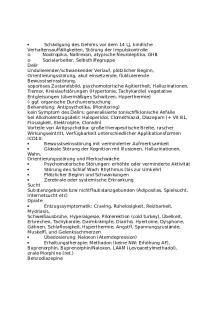
Test - test
- 1 Pages
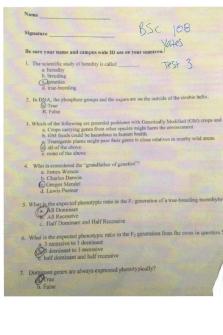
Yates Test 3 - Test
- 7 Pages
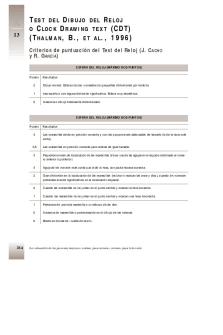
Test-reloj - test
- 4 Pages
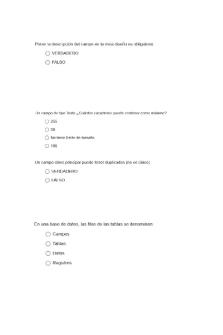
Test Access 2010 - Test
- 6 Pages
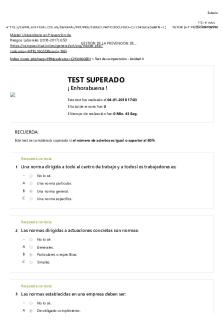
Resultado Test 842 - TEST
- 2 Pages
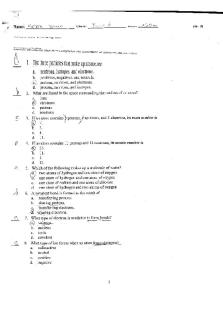
AP. Bio. Test - test
- 4 Pages
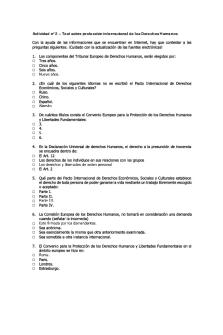
Test
- 4 Pages
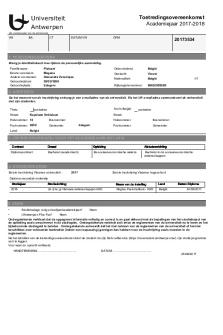
TEST
- 1 Pages

Chapter 4-test - test
- 23 Pages
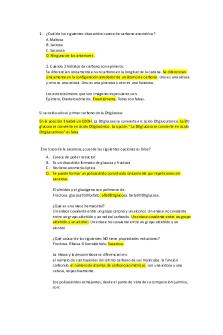
Test preguntas - test
- 4 Pages
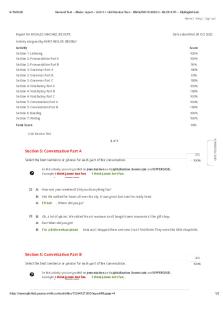
Test 3 - 5 - test
- 2 Pages

PET TEST Full Test
- 35 Pages
Popular Institutions
- Tinajero National High School - Annex
- Politeknik Caltex Riau
- Yokohama City University
- SGT University
- University of Al-Qadisiyah
- Divine Word College of Vigan
- Techniek College Rotterdam
- Universidade de Santiago
- Universiti Teknologi MARA Cawangan Johor Kampus Pasir Gudang
- Poltekkes Kemenkes Yogyakarta
- Baguio City National High School
- Colegio san marcos
- preparatoria uno
- Centro de Bachillerato Tecnológico Industrial y de Servicios No. 107
- Dalian Maritime University
- Quang Trung Secondary School
- Colegio Tecnológico en Informática
- Corporación Regional de Educación Superior
- Grupo CEDVA
- Dar Al Uloom University
- Centro de Estudios Preuniversitarios de la Universidad Nacional de Ingeniería
- 上智大学
- Aakash International School, Nuna Majara
- San Felipe Neri Catholic School
- Kang Chiao International School - New Taipei City
- Misamis Occidental National High School
- Institución Educativa Escuela Normal Juan Ladrilleros
- Kolehiyo ng Pantukan
- Batanes State College
- Instituto Continental
- Sekolah Menengah Kejuruan Kesehatan Kaltara (Tarakan)
- Colegio de La Inmaculada Concepcion - Cebu


